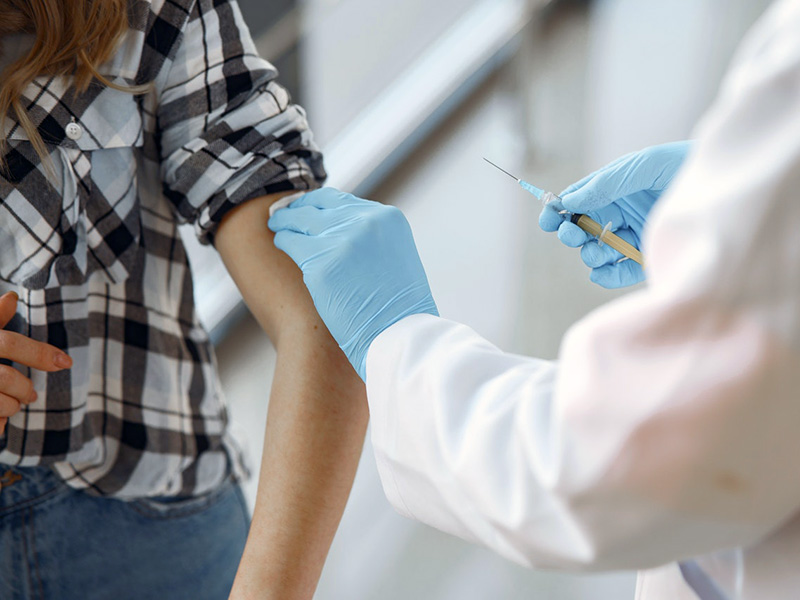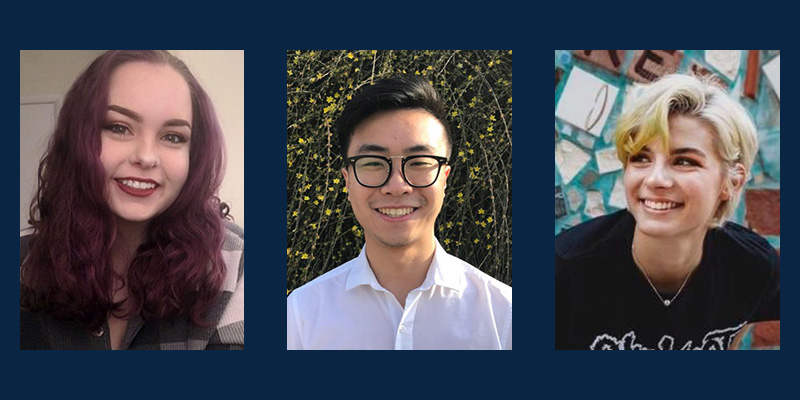As the world waits with bated and mask-covered breath for a vaccine that will stop the spread of COVID-19, Drexel Engineering students are getting an up-close look at how similar inoculations are made.

Chemical Engineering students Anna Buss, Mingwang Jiang and Cosmo Randazzo are three of nine Dragons from Drexel Engineering with co-ops at the multinational pharmaceutical company Merck.
Buss, returning to Merck for a second co-op, is working on a vaccine manufacturing team. She spent her previous experience shadowing managers and working with biotechnicians who were developing Gardasil, the HPV vaccine. Now, she is helping to update GMP (good manufacturing practice) documentation and managing technical change requests for the development of new pneumococcal vaccines.
“It’s a good mix of leading my own projects and being part of other people’s projects,” she says. “I’ve learning a lot about supply chain and the materials pipeline — how to set up manufacturing, how to validate the product, and more.”
Jiang and Randazzo are helping with global vaccine technical operations. Jiang is supporting communications between Merck’s many manufacturing sites, reconciling differences in process and helping to oversee the global scale of production and providing technology support.
“This co-op is making it clear to me that I want to be in the pharmaceutical industry professionally,” he says. “I like the challenge. There are so many different options. You can work your entire life doing different things every couple of years — operations, management, technicians, quality control, automation — and always be learning new things.”

Left to right: Anna Buss, Mingwang Jiang and Cosmo Randazzo
Randazzo’s focus is on ensuring quality of the raw materials that come into the vaccine manufacturing process. They say that the experience is giving them a greater grasp of how long it takes to develop a vaccine.
“You don’t understand until you’re part of it – how many steps, how many teams, how many individuals are involved in a single vaccine,” Randazzo says. “I really have an appreciation now for everyone in the medical field and how hard they work to get a vaccine ready.”
Buss has developed a similar appreciation, and says that the development of the vaccines she’s helping with is giving her insight into the unprecedented speed behind the search for a COVID-19 vaccine.
“One vaccine I’m working on has been in development for several years, and it’s still under clinical review,” she says. “But the teams that are working on all our vaccines follow Merck’s mantra of safety first, quality always. Every person who enters the process is held to a high standard, so I’m confident that no matter how fast we’re working, we’re doing it responsibly.”
“I really have an appreciation now for everyone in the medical field and how hard they work to get a vaccine ready.”
Cosmo Randazzo
In addition to teaching them about professional environments, the co-op is also providing the students with new approaches that they can bring with them to the classroom.
“I’m finding that I’m applying things soft skills back to class that I learned from my colleagues at Merck,” Jiang says. “When I’m solving a problem, I can look at the ideal solution and then work my way back from there rather than worry first what approach to take. I see things more holistically.”
Randazzo, too, is finding that the co-op can teach more than what’s in a job description.
“One big piece I’m learning is how important a well-structured team is,” they say. “I’m learning really good interpersonal, writing and communications skills that are going to help me be successful whether I wind up in this kind of job or not.”